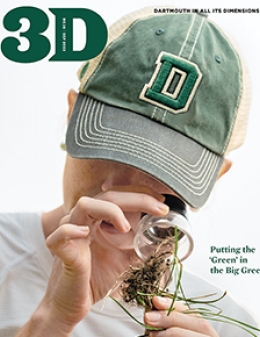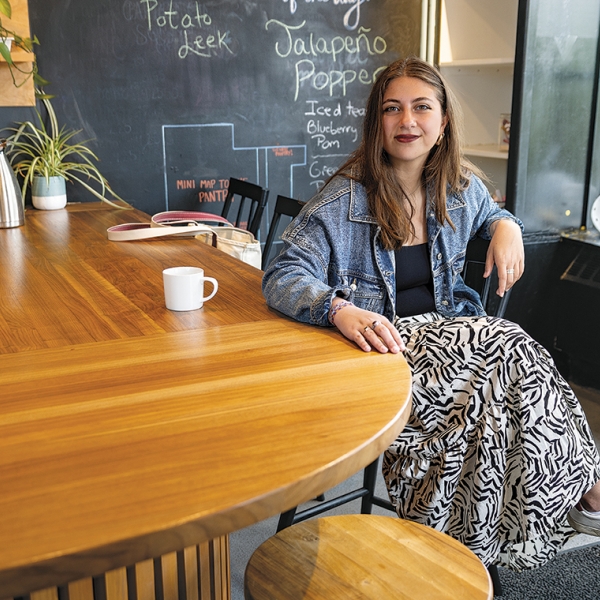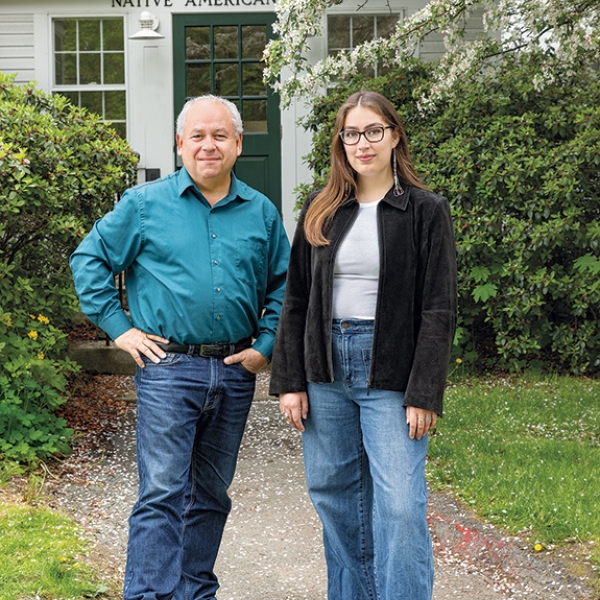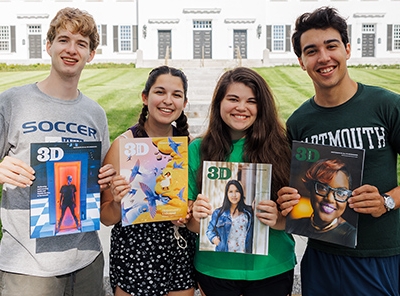A Mushroom Hunter and Soil Ecologist Study the Synergies of Plants and Fungi

"We often discuss questions like 'What are the consequences and the goals of our research, and how will they make an impact?' That's an element of science that I hadn't had any exposure to before. This research has been extremely important to my development as a student and a thinker."
Liam Nokes '25
Liam Nokes ’25
he/him/his
Hometown
Arlington, Massachusettes
Majors
Environmental Studies and Mathematics modified with Biology
Bala Chaudhary
she/her/hers
Position
Associate Professor of Environmental Studies
Tell us about your work studying the relationship between fungi and plants.
Professor Chaudhary
With a grant from the National Science Foundation, my lab is tracking the aerial dispersal of mycorrhizal fungi at 20 different sites across the country. We need a lot of hands in the lab to process the samples from these sites, extract their DNA, and sequence the fungi. That endeavor is really driven by undergraduates in the lab, and that’s where people like Liam come in.
Liam
Over the last two years, I’ve learned to process DNA samples and examine mycorrhizae, soil, and roots. I’ve developed a greater fluency with data and have a much better sense of what it means to design a study and design it well. I’ve also learned a lot of interpersonal skills, especially around how to communicate scientific findings. Recently, I’ve been working with Dr. Chaudhary to create a database of mycorrhizal fungal spore traits.
How did you become interested in studying ecology?
Liam
My grandfather came from a rural farming community in Catalonia and one of the ways that he connected with his family back home was through mushroom hunting. That became something we shared together. When I learned about mycorrhizae, I was hooked. The idea that fungi are so central to the success of functioning terrestrial ecosystems got me fired up.
Professor Chaudhary
What really ignited my passion for being a scientist was learning that science is a social endeavor. It’s about thinking and collaborating with others. I love thinking outside of the box to address problems with other people. That’s what keeps me coming back.
Liam, what have you gained from working in Professor Chaudhary’s lab?
Liam
Some of the best learning I’ve done at Dartmouth has been through the Chaudhary lab. The lab was the first safe space I found at Dartmouth. We talk a lot about accessibility and equity in STEM in our lab discussions, and we also support each other on research questions. Dr. Chaudhary leads by example, and that’s made me a much better researcher and scientist.
Professor Chaudhary
The lab is collaborative, not competitive. The students interact with an understanding that rising tides lift all boats— if one student succeeds, we all do well. In my lab, undergraduates, PhD students, technical professionals, and postdocs all learn from one another. It’s my job to make sure that that co-learning can continue.
Liam
Being a part of Professor Chaudhary’s lab has made me even more excited about the intersection of science and social systems. We often discuss questions like “What are the consequences and the goals of our research, and how will they make an impact?” That’s an element of science that I hadn’t had any exposure to before. This research has been extremely important to my development as a student and a thinker.
Photograph by Don Hamerman




